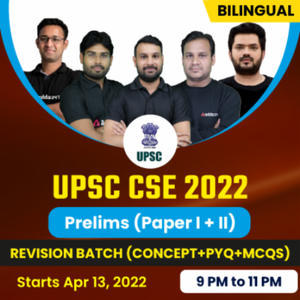Table of Contents
Marital Rape in India- Relevance for UPSC Exam
- GS Paper 2: Governance, Administration and Challenges- Government policies and interventions for development in various sectors and issues arising out of their design and implementation.
Marital Rape in India in news
- Recently, a two-judge Bench of the Delhi High Court delivered a split verdictin a batch of petitions challenging the exception provided to marital rape in the Indian Penal Code (IPC).
Marital Rape in India
- Background: A split verdict in the Delhi High Court on the question of criminalising marital rape has reignited the controversy over legal protection for disregard of consent for sex within marriage.
- Marital Rape in IPC: Exceptions to the Section 375 of the IPC says that intercourse by a man with his wife aged 18 or above is not rape even if it is without her consent.
- Government’s View: The Union government has been opposing the removal of the marital rape exception.
- In 2016, it had rejected the concept of marital rape, saying it “cannot be applied to the Indian context” due to various reasons, not least because of the “mindset of society to treat marriage as a sacrament”.
- However, in the final hearing, the Union government did not take a stand on the issue.
The Editorial Analysis- A Far-reaching Verdict that Ends a Regressive Exception
Delhi High Court on Marital Rape
- In favour: Justice Rajiv Shakdher, who headed the recent Delhi High Court Bench, struck down exception to Section 375 of the IPC as unconstitutional.
- Justice Shakdher’s opinion goes to the heart of the matter, inasmuch as it treats the absence of consent as the core ingredient of rape.
- He says what is defined as rape in law should be labelled as such, irrespective of whether it occurs within or outside marriage.
- He finds that the marital exception violates equality before law, as well as deprives women of the right to trigger a prosecution for non-consensual sex.
- Besides, it also discriminates among women based on their marital status and robs them of sexual agency and autonomy.
- Against Criminalizing Marital Rape: Justice C. Hari Shankar rejected the plea to criminalise marital rape.
- He pointed out that any change in the law has to be carried out by the legislature since it requires consideration of social, cultural and legal aspects.
- He prioritizes importance of preserving the institution of marriage to such an extent that he holds that any legislation that keeps rape out of a marital relationship “is immune to interference”.
Marital Rape in India- Way Forward
- No Place for Exception: If marriage is regarded as a partnership between equals, an exception in a 162-year-old law should have had no place.
- Zero Tolerance to Violence: While there are other laws governing civil relationships that legitimise conjugal expectations, these cannot be seen as giving a free pass for violence within marriage, which is essentially what sex without consent is.
Conclusion
- Whether the legislative route is more appropriate in making marital rape a criminal offence is a matter of detail. What is important is that sexual violence has no place in society, and the institution of marriage is no exception.
PM Bhartiya Janaushadhi Kendras (PMBJKs) | PMBJP Scheme
adda247.com/…/pm-bhartiya-janaushadhi-kendras-pmbjks-pmbjp-scheme





 TSPSC Group 1 Question Paper 2024, Downl...
TSPSC Group 1 Question Paper 2024, Downl...
 TSPSC Group 1 Answer key 2024 Out, Downl...
TSPSC Group 1 Answer key 2024 Out, Downl...
 UPSC Prelims 2024 Question Paper, Downlo...
UPSC Prelims 2024 Question Paper, Downlo...
